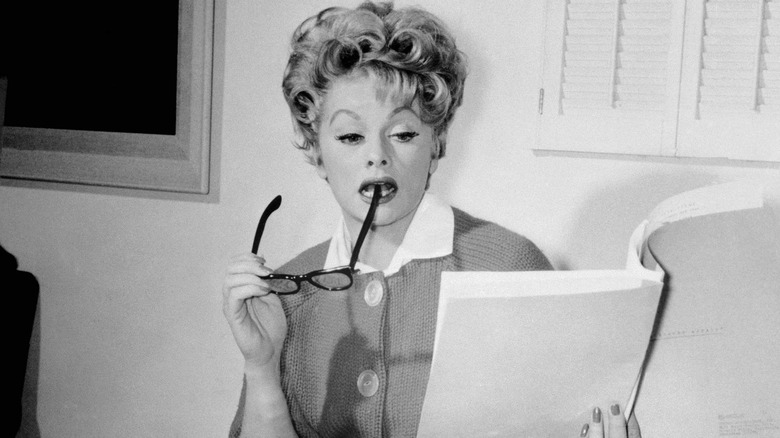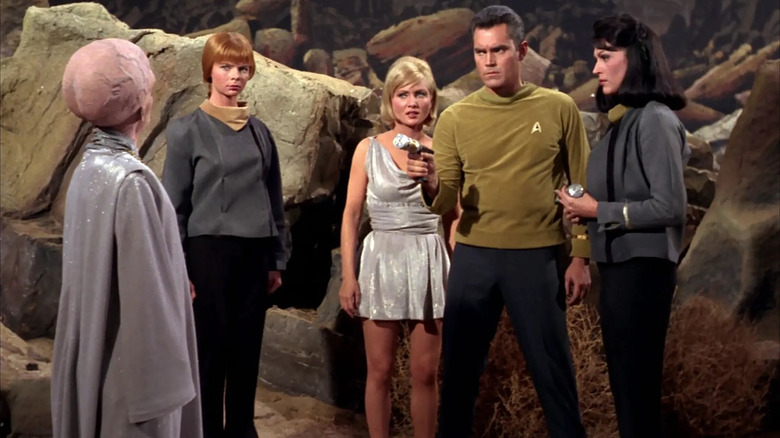Star Trek Wouldn't Exist Without... Lucille Ball?
Comedy pioneer Lucille Ball is still recognized today for her groundbreaking television comedy, but it turns out she also played a pivotal role in the exploration of the final frontier. Though many may be surprised to learn of it, Ball was a key figure in the success of the original "Star Trek" series, which spawned a massive multimedia franchise that's still going strong today, not to mention the immeasurable influence it casts over the entire science-fiction genre.
The story can be found on the official "Star Trek" site, celebrating how the "I Love Lucy" star was crucial in her behind-the-scenes role of bringing the show to the airwaves following a failed pilot episode.
In 1964, when "Star Trek" creator Gene Roddenberry was trying to get the show produced, Ball was the sole head of the Desilu production company following her split from Desi Arnaz. She bought the series from Roddenberry without fully grasping its concept; the story goes that she initially thought it was about a troupe of celebrity USO performers entertaining the soldiers during World War II.
Ball championed the series during its rocky first steps
The first pilot episode of "Star Trek," entitled "The Cage," holds an infamous place in the series' history. Were it not for Lucille Ball, "The Cage" would have likely been the first, last, and only adventure of the USS Enterprise. Instead, Ball fought hard and even invested her own money in a second pilot episode, which made it to air and kicked off the pop culture phenomenon we know today.
Unfortunately, Ball suffered life-changing sacrifices for "Star Trek," and the show's unusually expensive production budgets eventually led to her selling off Desilu. Noted "Star Trek" scholar Marc Cushman put it in no uncertain terms:
"Lucille Ball lost her studio because of 'Star Trek.' She had gambled on the show, and you can read the memos where her board of directors is saying, 'Don't do this show, it's going to kill us.' But she believed in it. She moved forward with it, and during the second season, she had to sell Desilu to Paramount Pictures. Lucille Ball gave up the studio that she and her husband built, it's all she had left of her marriage, and she sacrificed that for 'Star Trek.'"
Ball's instincts told her that "Star Trek" had the potential to be a massive enduring hit, one that would continue to be successful in reruns and broadcasts all over the world. She was proven more right than she ever could have dreamed but sadly wasn't able to reap the financial benefits after selling Desliu to Paramount Pictures, which still holds the rights to the "Star Trek" franchise today.

